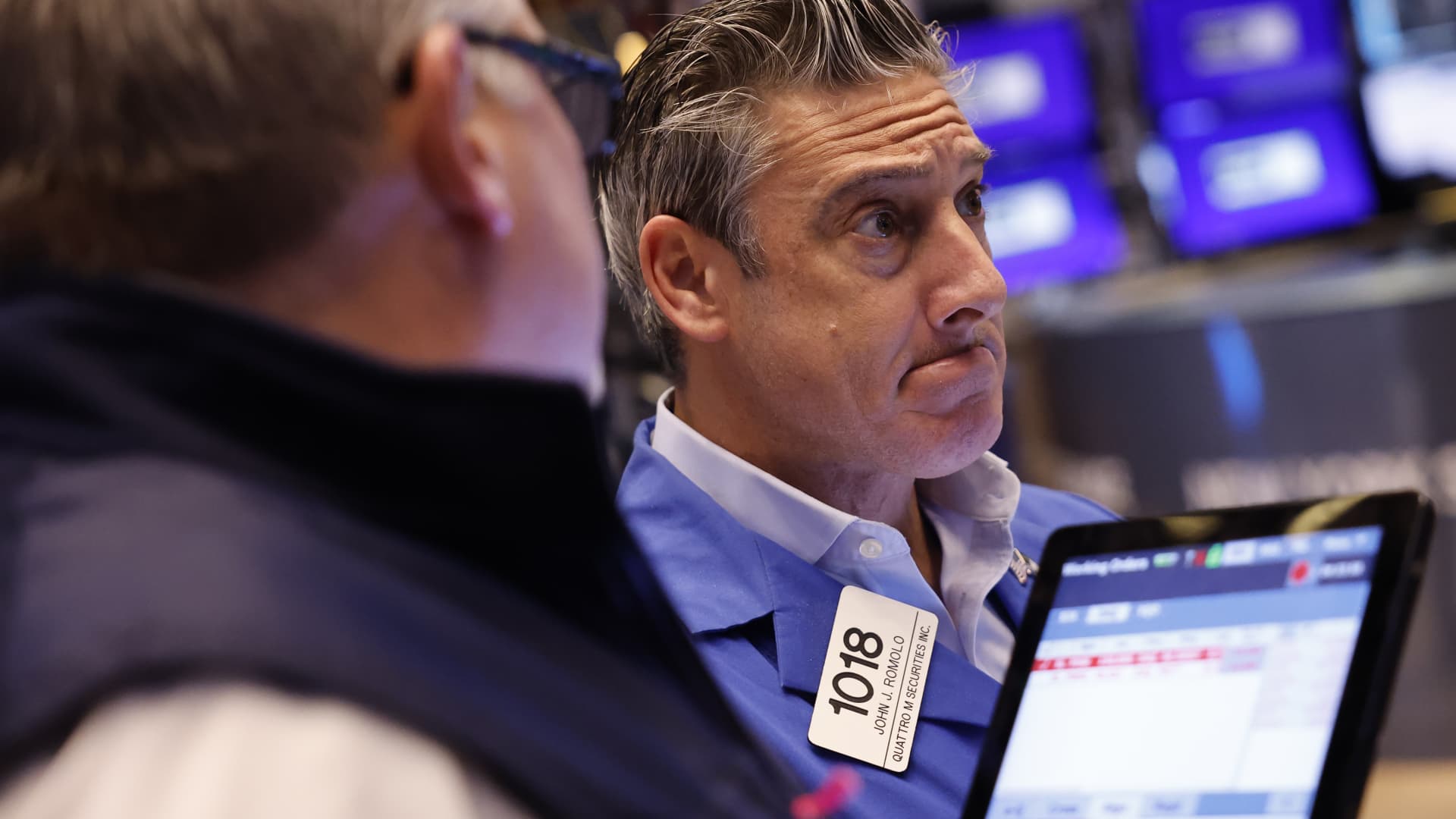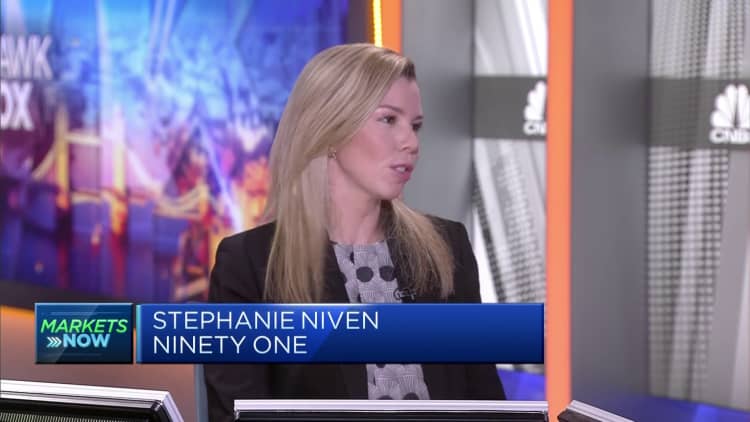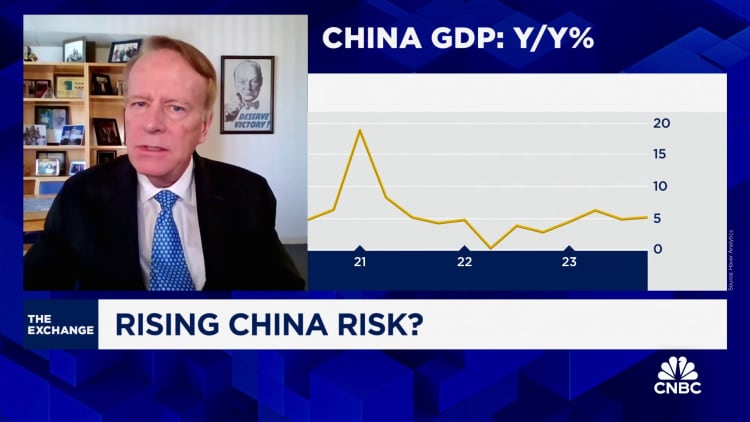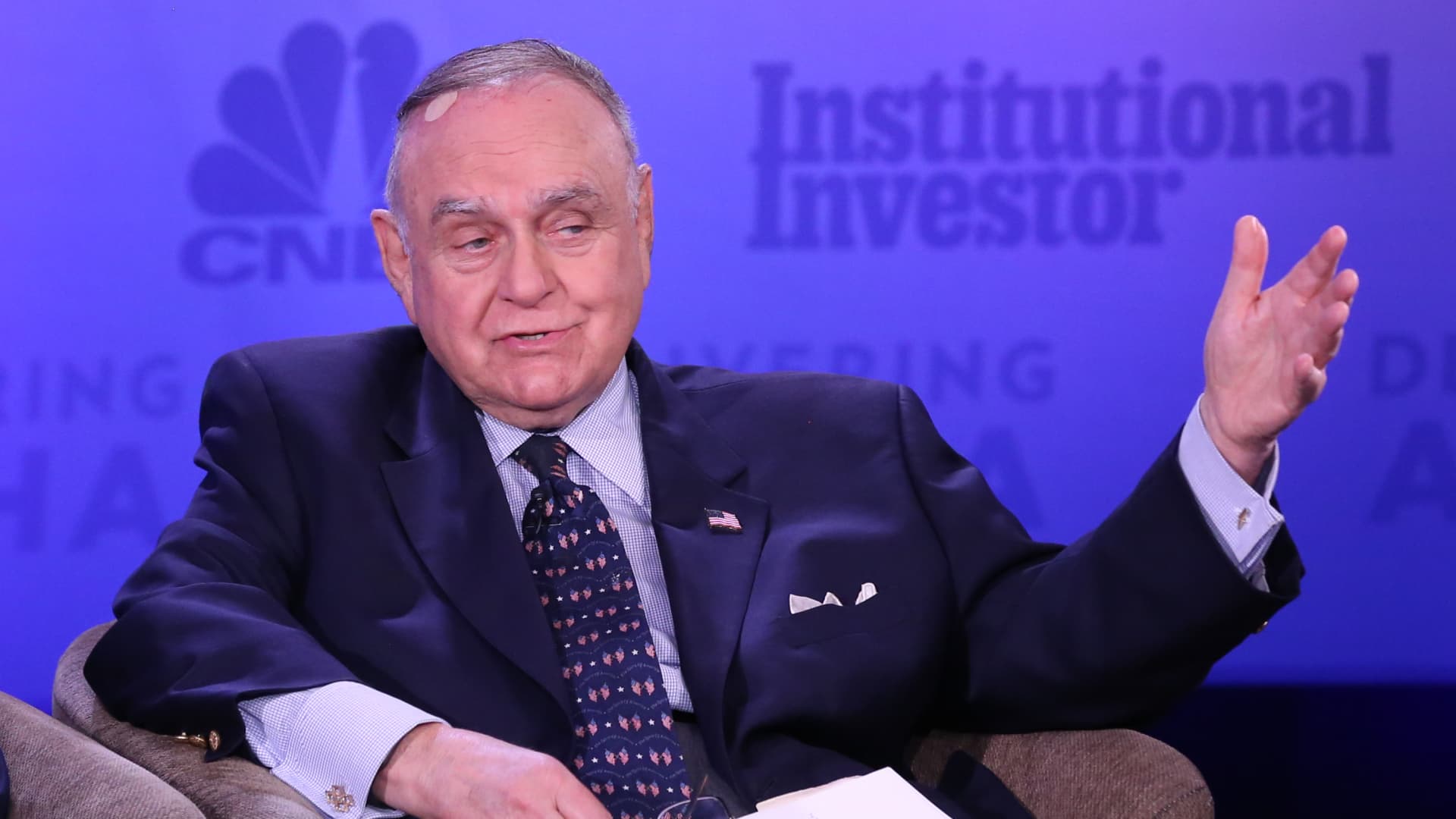Markets are hitting record highs. And economists like El-Erian and Krugman can’t shake off their fears


Traders work on the floor of the New York Stock Exchange during morning trading on February 29, 2024 in New York City.
Michael M. Santiago | Getty Images
A new day, a new all-time high. From stocks to bitcoin, asset classes across the board have been hitting uncharted territories.
Why?
There are a few reasons at play.
Unabating artificial intelligence hype, hopes that global interest rates may fall, and more specific to the crypto space: bitcoin ETF approvals.
A fiery rally in tech stocks powered the Nasdaq 100 to a fresh record and helped the S&P 500 finish above the 5,000 mark for the first time ever last week. AI ecstasy has also boosted individual tech stocks to historic levels, with Nvidia‘s stock market value smashing a $2 trillion valuation for the first time ever.
Since those peaks however, Wall Street equities have pulled back as borrowing rate uncertainty weighs on investors’ minds.
In Asia, Japan’s Nikkei 225 has echoed an eye-popping performance with the country’s stock market index newly crossing 40,000 points on Monday. That’s after the Nikkei zoomed past 1989 highs last month – with the gains largely driven by robust earnings and corporate governance reforms.
Over in the alternative asset world, a combination of investors pouring money into U.S. spot exchange-traded crypto products, and bitcoin’s upcoming halving event supercharged the world’s largest cryptocurrency above $69,000 — a price level not seen in more than two years.
Stellar prices for gold have also stolen investor attention, with the precious metal scaling a new record of over $2,100. The gains have been fueled by U.S. rate cut expectations and China economic woes, with gold traditionally rallying in times of economic stress.
The record-breaking numbers for markets, however, haven’t stopped some investors from worrying about three key issues.
Inflation resurgence
After months of cooling, U.S inflation is proving itself to be more stubborn than experts had predicted.
Though January’s year-on-year CPI (consumer prcie index) read fell to 3.1%, it still came in hotter than expected. That’s despite the Federal Reserve embarking on an aggressive monetary policy campaign over the past year, in a bid to tame consumer price pressures from their 40-year highs.
Nobel laureate Paul Krugman flagged inflationary pressures in the U.S. in a recent post on X, where he built on Moody’s economist Mark Zandi’s thoughts over an increase in core PCE (personal consumption expenditures) deflator numbers.
“Business surveys keep failing to show an inflation surge. Those January numbers look like a blip ‘juiced by problematic seasonals’, as Mark Zandi puts it,” Krugman said.
Economist Nouriel Roubini, often called “Dr. Doom,” also chimed in on the topic, saying a Trump reelection could spell trouble for the global economy, given his policies could stoke inflation again and may even trigger stagflation.

JPMorgan’s chief market strategist built on risks of stagflation too. Marko Kolanovic warned a “second inflation wave” could take hold, with the chances of the “narrative turning back from goldilocks towards something like 1970s stagflation,” he said in a recent research note. A goldilocks economy refers to a favorable environment whether data is neither too hot or cold.
Financial instability
A data-obsessed Fed is also on the worry cards for financial investors.
Top economist and Allianz advisor Mohamed El-Erian said in a Bloomberg op-ed that a Fed “held hostage” by data could trigger financial instability.
“Don’t get me wrong; high-frequency inputs are important in any assessment of economic conditions and policy responses,” El-Erian said.
“In today’s economy, an excessive focus on the numbers tips the balance of risks toward keeping interest rates too restrictive for too long, unduly increasing the probability of output loss, higher unemployment and financial instability,” he added.
El-Erian has long-been critical of the Fed, blaming it for mischaracterizing inflation as a transitory problem as well as being too late in its fight against consumer price pressures.
Speaking to CNBC, El-Erian said if the Fed doesn’t cut rates this year, then “the market is correct to worry about economic growth and earnings.”
China woes
Troubles in the world’s second-largest economy have also gripped investors. The country is blistered with economic issues, from a property crisis to deflationary pressures — and market watchers are worried those woes could spill over to the rest of the world.
Ariel Investments’ Vice Chair Charlie Bobrinskoy told CNBC markets are not focused on China’s residential real estate problems. “The market does understand there is a problem, but doesn’t understand the size of the problem,” he said, discussing the ripple effects of the country’s property market on the rest of the world.

The auto industry has already begun seeing the effects of a China slowdown in their earnings results.
Tesla as well as Chinese carmaker BYD reported a 19% and nearly 40% year-on-year plunge in China sales, respectively, in February.
Record highs or not, it seems market experts can’t be swayed to the upside just yet.









